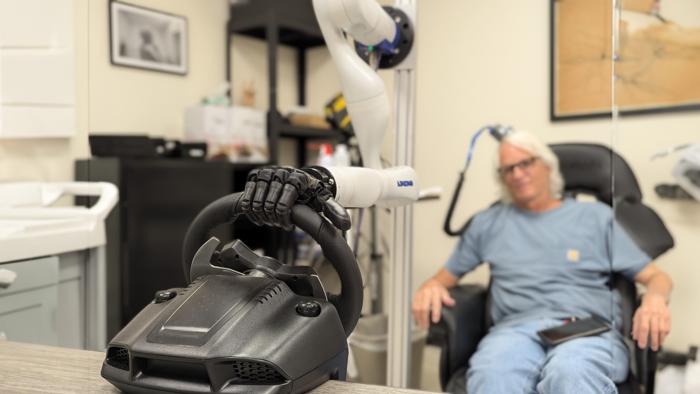
Researchers in the US have systematically evaluated health outcomes among more than 2 million people with diabetes taking popular weight-loss drugs, finding widespread associations with benefits to cognitive and behavioural health but also increased risks for pancreatitis and kidney conditions.
New generation weight loss drugs such as Wegovy are known as glucagon-like peptide-1 receptor agonists (GLP-1RA).
Informally, media, patients and even some physicians have dubbed GLP-1 medications as “miracle drugs” because of the profound weight loss among users.
While these health benefits are well established, information is sparse on the drugs’ effects across the body’s organ systems.
Ziyad Al-Aly, MD is a clinical epidemiologist and nephrologist who treats patients at the WashU Medicine-affiliated John J. Cochran Veterans Hospital in St. Louis.
The researcher said: “Given the drugs’ newness and skyrocketing popularity, it is important to systematically examine their effects on all body systems — leaving no stone unturned — to understand what they do and what they don’t do.
“Our approach has allowed us to build a comprehensive atlas mapping the associations of GLP-1RA spanning all organ systems.
“The study’s results provide insights into some known and previously unrecognised benefits and risks of GLP-1RA that may be useful to inform clinical care and guide research agendas.”
The drugs, taken once a week by injection, simulate naturally produced hormones that curb appetite and slow digestion, creating longer-lasting satiety.
A healthy diet and exercise also assist with weight loss.
For the study, WashU Medicine researchers analysed de-identified medical records in a database maintained by the U.S. Department of Veterans Affairs.
They compared 175 health outcomes between veterans who took GLP-1RA drugs to treat their diabetes and those who took more traditional medications sold under brand names such as Jardiance, Glipizide and Januvia.
Altogether, the dataset examined more than 2 million veterans who were treated for diabetes from Oct. 1, 2017, to Dec. 31, 2023.
Patients included people of diverse ages, races and sexes.
GLP-1RA drugs were associated with significant benefits to neurological and behavioural health, with reduced risks of seizures and addiction to substances such as alcohol, cannabis, stimulants and opioids.
People taking the weight-loss drugs also experienced decreased risks of suicidal ideation, self-harm, bulimia and psychotic disorders such as schizophrenia.
WashU Medicine’s findings also showed a decreased risk of neurocognitive disorders such as Alzheimer’s and dementia.
Al-Aly said: “Interestingly, GLP-1RA drugs act on receptors that are expressed in brain areas involved in impulse control, reward and addiction — potentially explaining their effectiveness in curbing appetite and addiction disorders.
“These drugs also reduce inflammation in the brain and result in weight loss; both these factors may improve brain health and explain the reduced risk of conditions like Alzheimer’s disease and dementia.”
While GLP-1RA drugs display effectiveness against a wide array of health problems, the magnitude of associated benefits is modest — about a 10 percent to 20 percent reduction for most outcomes.
Al-Aly sai: “However, the modest effect does not negate the potential value of these drugs, especially for conditions where few effective treatment options exist, for example, dementia.
“This may also imply that these drugs are most beneficial when used in conjunction with other interventions, such as lifestyle changes or other medications.”
The study also confirmed past research findings detailing the drugs’ potential to lower the risk of heart attack, stroke and other cardiovascular concerns.
Al-Aly emphasised that his study also highlighted potential downsides to the medications, including an increased risk of gastrointestinal problems such as nausea, vomiting, diarrhoea, and in rare cases paralysis of the stomach.
The researcher said: “These have been well documented in the research and anecdotally.
“Our study confirmed such findings.”
But what is novel is the potential ways GLP-1RA drugs can negatively affect the pancreas and kidneys.
While these adverse effects are uncommon, they can be very serious; physicians must be vigilant for signs of pancreatitis and monitor kidney function among people taking GLP-1RA medications. Kidney problems can occur without symptoms until the condition is at an advanced stage with limited treatment options.
Al-Aly said: “GLP-1RA drugs can have broad health benefits.
“However, they are not without risks.
“Our findings underscore the possibility for wider applications for these medications but also highlight important risks that should be carefully monitored in people taking these drugs.”





